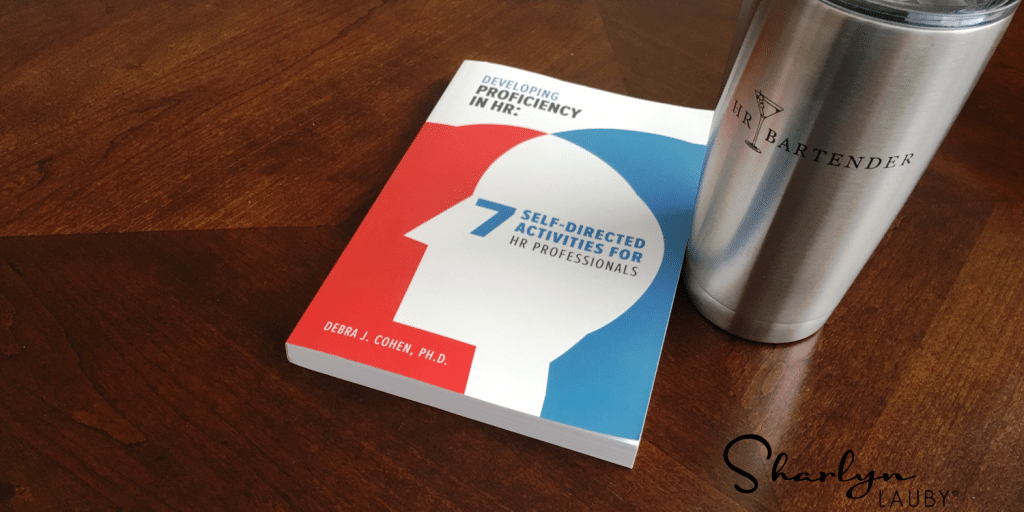Using an #HR Career Portfolio to Develop Your Skills
We talk a lot on this blog about the need to develop skills. No matter where you are in your career, it’s important to regularly take inventory of your skills and develop learning action plans. I recently came across a new way of thinking about learning that I thought was worth sharing. It’s the idea of a “portfolio.”
In the book “Developing Proficiency in HR: 7 Self-Directed Activities for HR Professionals”, author Debra Cohen PhD talks about creating a portfolio for HR competency development. The first thing that popped into my mind was an artist’s portfolio. You know, a place where an artist keeps their work. A portfolio tells us what we’ve accomplished and what we’re still working on, so it’s very practical and flexible.
Speaking of flexibility, a career portfolio allows you to make it your own in a couple of ways:
Format: Your career portfolio can be housed wherever you wish – online, paper, or maybe even in a planner or journal.
Content: Depending on your goals, a career portfolio can focus on accomplishments, current learning, or future development.
Self-awareness: A career portfolio would be an appropriate place to keep assessment results, reference letters, or thank-you notes.
It’s important to keep your resume up-to-date. I can see how a career portfolio would be a great tool to help with that. Or if you’re considering a job search, a career portfolio might be a place to compile information for review prior to a job interview. At annual performance review time, a career portfolio might be a good way to highlight what you’ve accomplished during the year.
In her book, Deb identifies a list of documents you can include in your portfolio along with a worksheet so you can keep inventory. I thought this was especially helpful because I can see it being very easy just to chuck everything into the portfolio. After a while, there’s this huge file full of stuff and the value has diminished because it takes too long to find what you’re looking for.
Deb suggests keeping your portfolio manageable. “You don’t need to discard older documentation altogether; you can store it in a portfolio archive. Consider whether you are trying to show an evolution of skills or what’s relevant to your current career level or aspiration; for example, you may decide not to include transcripts late in your career. You may want to show an evolution in some areas and not in others.”
If you don’t already have a career portfolio, this might be something to consider putting together. I’d suggest reading “Developing Proficiency in HR” first to give you some ideas. And let me add, if you’re not in HR, using this book as your guide isn’t far-fetched. HR’s competencies include communication, critical evaluation, and leadership…so we’re talking about skills that translate to many jobs. Every business pro should have a career portfolio.
Image captured by Sharlyn Lauby while enjoying Downton Legacy Tea in South Florida
4